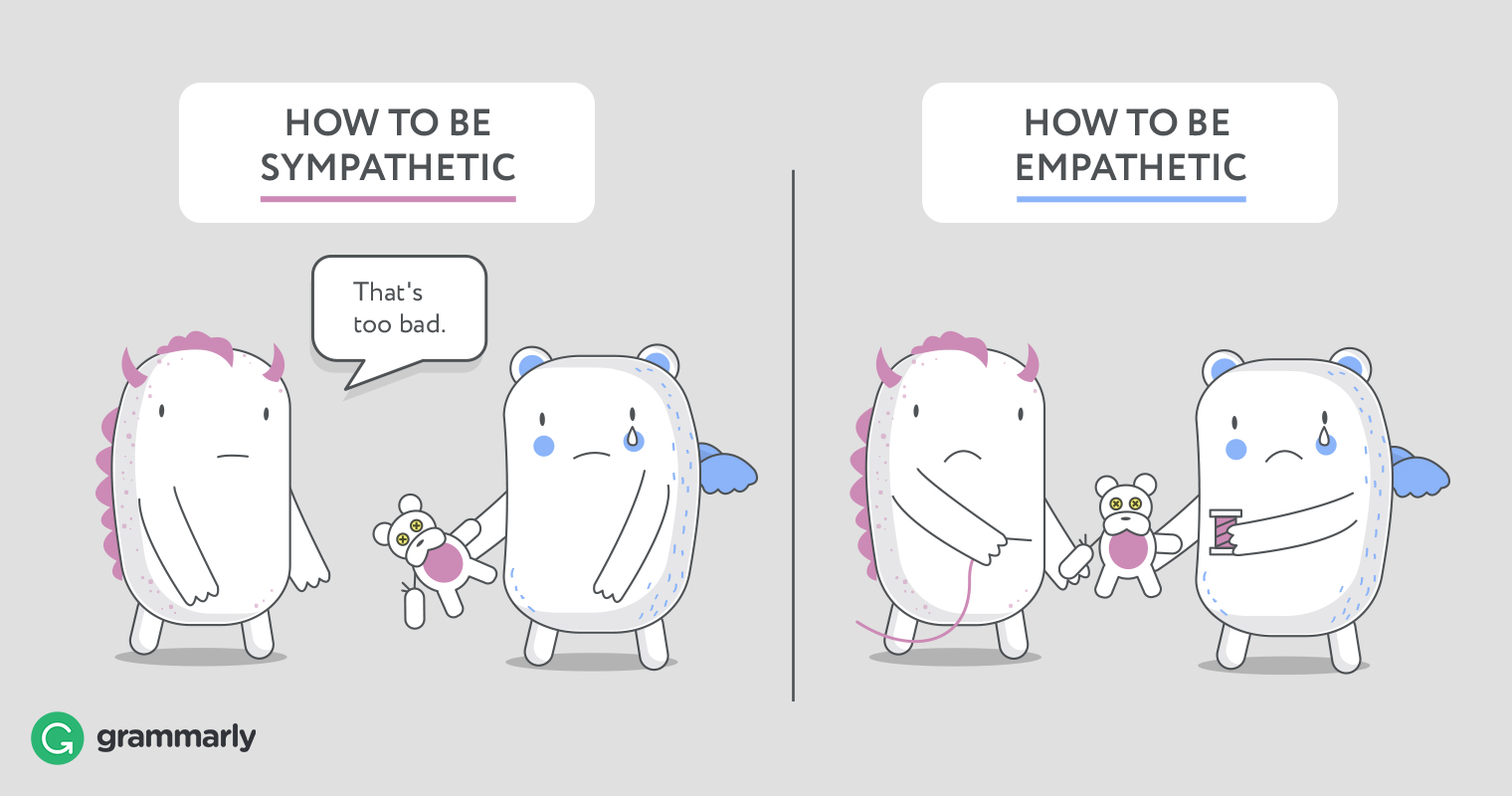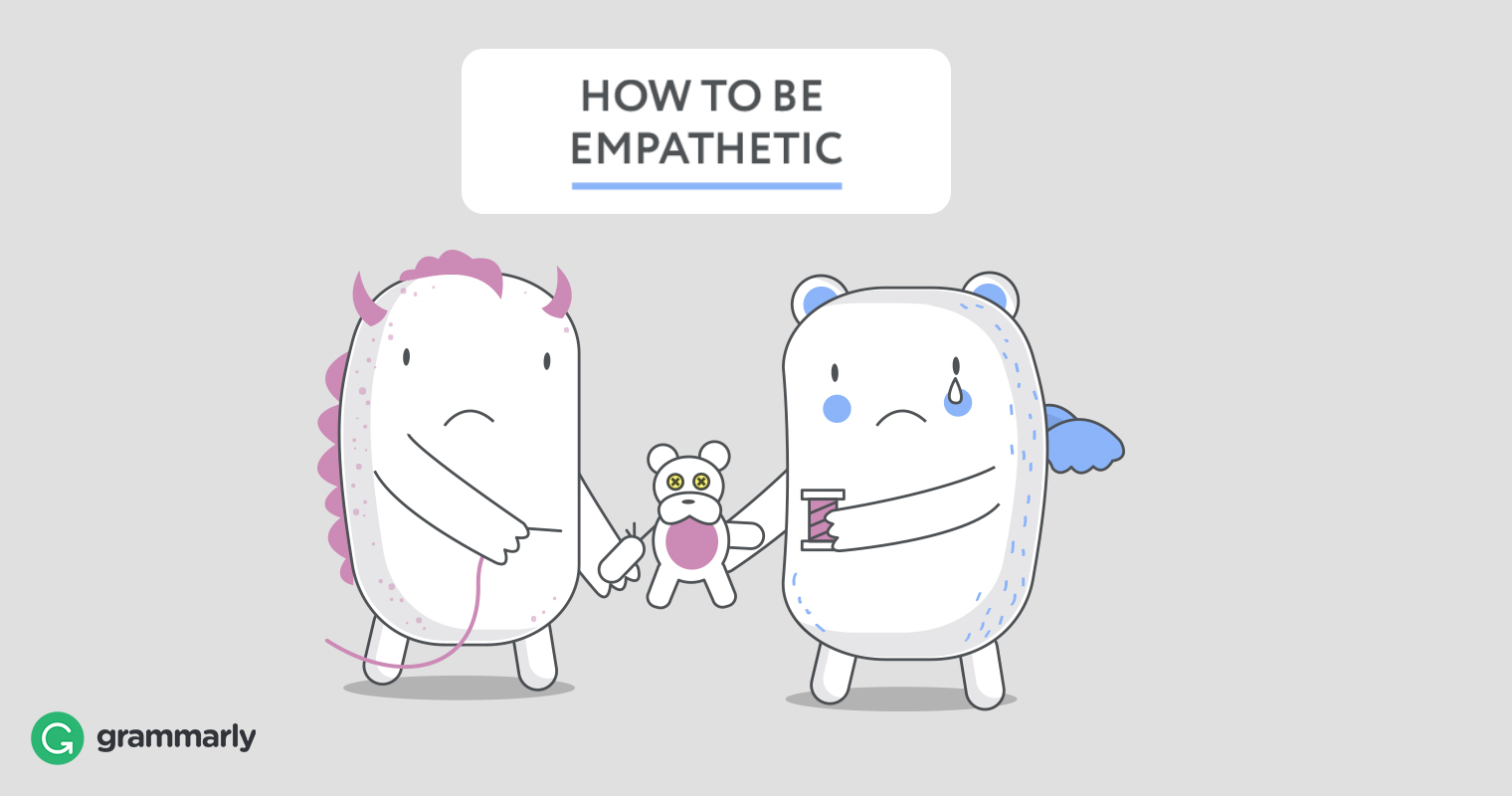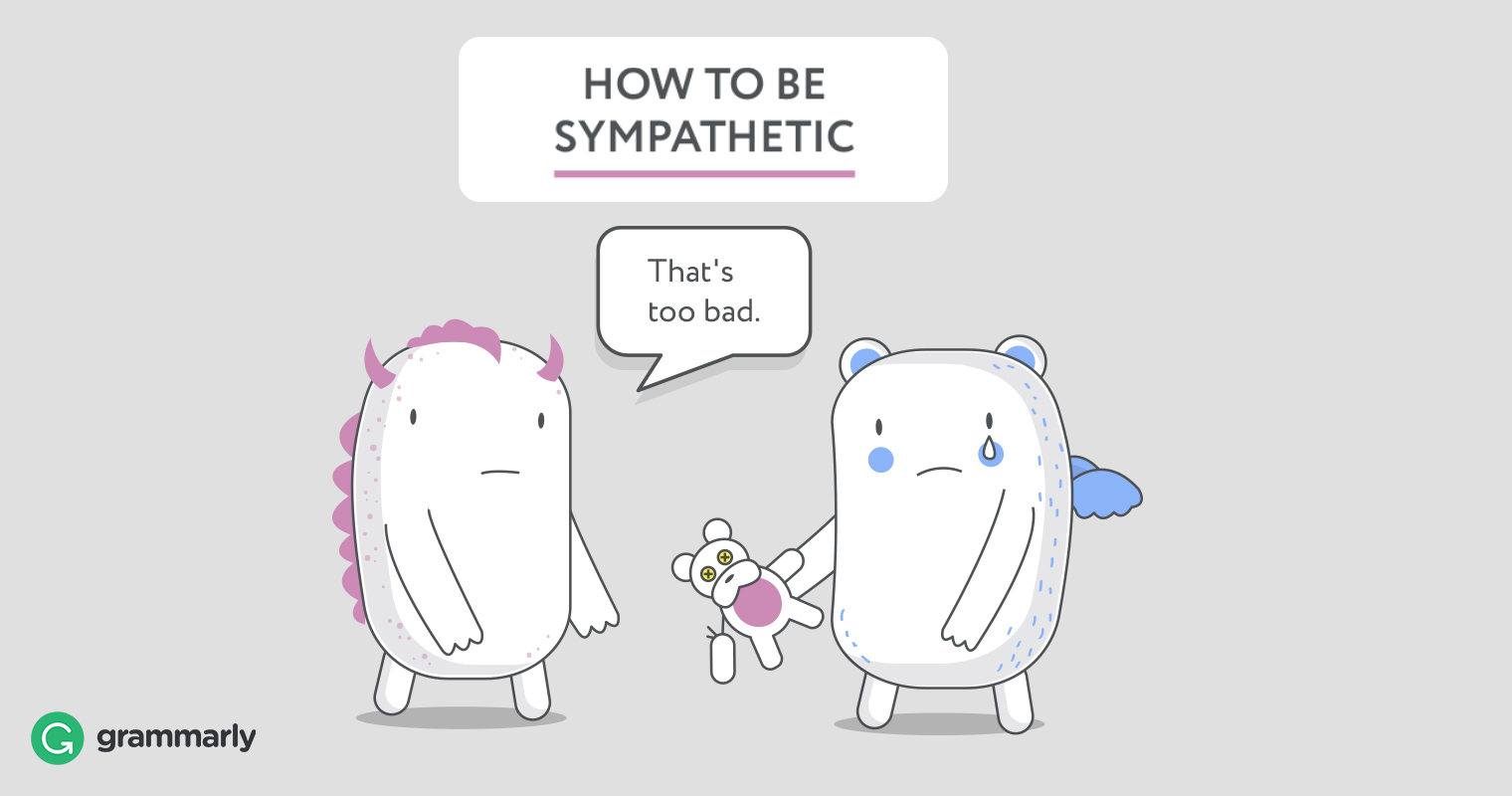- Empathetic is an adjective that describes someone or something that exhibits empathy.
- Empathy is a high degree of understanding of other people’s emotions.
- Empathetic and empathic are interchangeable but sympathetic has a slightly different meaning.
Do you know the old proverb that says you can’t judge a man until you’ve walked a mile in his shoes? It’s a great example of how a short message about empathy can enter a culture and be passed across generations. Rightfully so, because so often it seems that if we only knew how to understand other people’s feelings, motivations, and goals, everything would be so much better. Let’s talk about what it means to be empathetic.

What does empathetic mean?
Empathetic is an adjective that describes someone who is characterized by empathy. Empathy is the root word here, so you can’t define empathetic without first understanding what empathy is. Can you think of a time when you felt an emotion because someone else was feeling it at the time? Maybe you felt a sense of defeat when your best friend didn’t get into the college of her choice. Perhaps you felt nervous when your brother tried out for a singing competition on TV. If so, you know what empathy is and you can be described as empathetic. Other words with similar meanings include commiserative, understanding, compassionate, or sympathetic.

On the opposite side of empathy, there is callousness, heartlessness, or cold-heartedness. Not that you have to be callous, heartless, or cold-hearted if you’re not very empathetic—it’s possible to be somewhere in between.
Empathetic vs. empathic
The words empathetic and empathic mean the same thing. Empathic is the older word, but not by much—it was first used in 1909, while the first recorded of use of empathetic is from 1932. Both words are derived from empathy, and you can use them interchangeably.
In scientific writing, empathic is more common. It’s also the term that people associate with New Age teaching and theories because it reminds them of “empath,” a word that hasn’t yet made it into the major English dictionaries.
Empathetic vs. sympathetic
Empathetic and sympathetic are similar words, but they’re not the same. While being empathetic means putting yourself easily and completely in another person’s shoes, being sympathetic means showing concern for someone when something bad happens to them. It really boils down to the difference between empathy and sympathy.

Examples in a sentence
- Doctors, through their empathic treatment, cause their patients to better manage their diabetes.
- When your friends are empathetic, it makes you feel less alone.
- Building professional relationships requires one to understand the feelings of others—that is, to be empathetic.
- Although she had never broken her leg before, she was sympathetic to the runner’s injury.






